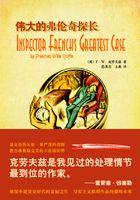*****Note--This proposition is comprehended much more clearly from what we have said in the note to II. vii. We there showed that the idea of body and body, that is, mind and body (II. xiii.), are one and the same individual conceived now under the attribute of thought, now under the attribute of extension; wherefore the idea of the mind and the mind itself are one and the same thing, which is conceived under one and the same attribute, namely, thought. The idea of the mind, I repeat, and the mind itself are in God by the same necessity and follow from him from the same power of thinking. Strictly speaking, the idea of the mind, that is, the idea of an idea, is nothing but the distinctive quality (forma) of the idea in so far as it is conceived as a mode of thought without reference to the object; if a man knows anything, he, by that very fact, knows that he knows it, and at the same time knows that he knows that he knows it, and so on to infinity. But I will treat of this hereafter.
XXII. The human mind perceives not only the modifications of the body, but also the ideas of such modifications.
Proof--The ideas of the ideas of modifications follow in God in the same manner, and are referred to God in the same manner, as the ideas of the said modifications. This is proved in the same way as II. xx. But the ideas of the modifications of the body are in the human mind (II. xii.), that is, in God, in so far as he constitutes the essence of the human mind; therefore the ideas of these ideas will be in God, in so far as he has the knowledge or idea of the human mind, that is (II. xxi.), they will be in the human mind itself, which therefore perceives not only the modifications of the body, but also the ideas of such modifications. Q.E.D.
XXIII. The mind does not know itself, except in so far as it perceives the ideas of the modifications of the body.
Proof--The idea or knowledge of the mind (II. xx.) follows in God in the same manner, and is referred to God in the same manner, as the idea or knowledge of the body. But since (II. xix.) the human mind does not know the human body itself, that is (II. xi. Cor.), since the knowledge of the human body is not referred to God, in so far as he constitutes the nature of the human mind; therefore, neither is the knowledge of the mind referred to God, in so far as he constitutes the essence of the human mind; therefore (by the same Cor. II. xi.), the human mind thus far has no knowledge of itself. Further the ideas of the modifications, whereby the body is affected, involve the nature of the human body itself (II. xvi.), that is (II. xiii.), they agree with the nature of the mind; wherefore the knowledge of these ideas necessarily involves knowledge of the mind; but (by the last Prop.) the knowledge of these ideas is in the human mind itself; wherefore the human mind thus far only has knowledge of itself. Q.E.D.
XXIV. The human mind does not involve an adequate knowledge of the parts composing the human body.
Proof--The parts composing the human body do not belong to the essence of that body, except in so far as they communicate their motions to one another in a certain fixed relation (Def. after Lemma iii.), not in so far as they can be regarded as individuals without relation to the human body. The parts of the human body are highly complex individuals (Post. i.), whose parts (Lemma iv.) can be separated from the human body without in any way destroying the nature and distinctive quality of the latter, and they can communicate their motions (Ax. i., after Lemma iii.) to other bodies in another relation; therefore (II. iii.) the idea or knowledge of each part will be in God, inasmuch (II. ix.) as he is regarded as affected by another idea of a particular thing, which particular thing is prior in the order of nature to the aforesaid part (II. vii.). We may affirm the same thing of each part of each individual composing the human body; therefore, the knowledge of each part composing the human body is in God, in so far as he is affected by very many ideas of things, and not in so far as he has the idea of the human body only, in other words, the idea which constitutes the nature of the human mind (II. xiii.); therefore (II. xi. Cor.), the human mind does not involve an adequate knowledge of the human body. Q.E.D.
XXV. The idea of each modification of the human body does not involve an adequate knowledge of the external body.
Proof--We have shown that the idea of a modification of the human body involves the nature of an external body, in so far as that external body conditions the human body in a given manner.
But, in so far as the external body is an individual, which has no reference to the human body, the knowledge or idea thereof is in God (II. ix.), in so far as God is regarded as affected by the idea of a further thing, which (II. vii.) is naturally prior to the said external body. Wherefore an adequate knowledge of the external body is not in God, in so far as he has the idea of the modification of the human body; in other words, the idea of the modification of the human body does not involve an adequate knowledge of the external body. Q.E.D.
XXVI. The human mind does not perceive any external body as actually existing, except through the ideas of the modifications of its own body.
Proof--If the human body is in no way affected by a given external body, then (II. vii.) neither is the idea of the human body, in other words, the human mind, affected in any way by the idea of the existence of the said external body, nor does it in any manner perceive its existence. But, in so far as the human body is affected in any way by a given external body, thus far (II. xvi. and Cor.) it perceives that external body. Q.E.D.
Corollary--In so far as the human mind imagines an external body, it has not an adequate knowledge thereof.















